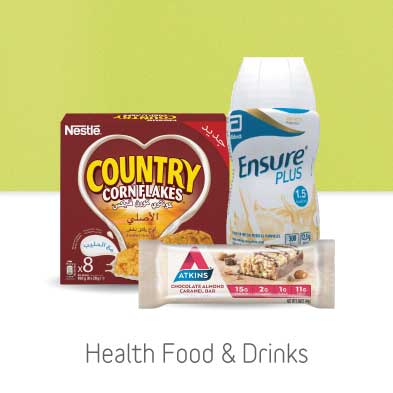How can we control our carbohydrate intake?
It is crucial to know the type of foods that contain carbohydrates. We advise you to distribute your carbs intake equally in the main or snack meals that you consume throughout the day. Foods that contain carbohydrates (carbs) significantly affect blood sugar levels. Therefore, it is important to know the type of foods you are consuming and the ways to reduce your intake of this food group. The majority of carbs comes from plant-based foods, such as fruits, vegetables, grains, bread, rice, grain crackers, and sugar. Milk and yogurt also contain carbs.
Here are a few helping tips to keep your diet aligned with your blood sugar levels:
-
Eat your meals at certain times, every day. Don’t skip any meals. Skipping meals, especially breakfast will never help you lose weight.
-
Control your carbs and whole-grain portions. Carbs such as rice, bread, fruits and milk raise blood sugar levels, you should control the portions while consuming these foods.
-
Choose low-fat protein sources. Chicken, fish and low-fat cheese are amazing low-fat food sources. Reduce your intake of red meat and fried food. Choose foods that contain healthy fats, for e.g. Olive and canola oil. Also reduce your intake of foods that contain high amounts of saturated fats, for e.g. Butter, cream, cheese and fatty meat.
-
Eat smaller portions. Using small plates/bowls will help to reduce your calorie intake.
-
Be wise about your restaurant choices. Don’t eat fast food as it contains a large number of calories, fats and sodium (salt). Share your meal with another person, or eat half of your meal and take the rest home.
-
Reduce your intake of sweetened foods and drinks. Honey, dates, sweets and sweetened juices will instantly raise your blood sugar levels.
-
Consume high-fiber foods. High fiber foods such as whole grains, brown rice, bran bread, fruits, and vegetables adds extra fiber to your diet, for e.g. A large serving of salad will make you feel full.
-
Eat less high-fat snacks and sweets. Biscuits and chips are high-fat snacks, instead eat a small amount of nuts, seeds, raw vegetables, or low-fat dairy products.
-
Choose sugar-free drinks. The best and safest option is always water, if you are consuming drinks, make sure to consume a small amount of fruit juice and regular soft drinks as they contain large amounts of sugar and calories.
Diabetics, in particular, have higher risks of suffering heart diseases and strokes. Eating healthy fiber-rich foods with a low amount of unsaturated fats and sodium will reduce the risk. To start consuming food for a healthy heart, you need to:
-
Consume fewer animal fats such as red meat, dairy products and whole milk.
-
Use less salt and processed foods.
-
Choose healthy oils for your heart, for e.g. Olive, canola and safflower oil, instead of animal fats, butter and solid fats.
Shop The Range of Healthy Food


